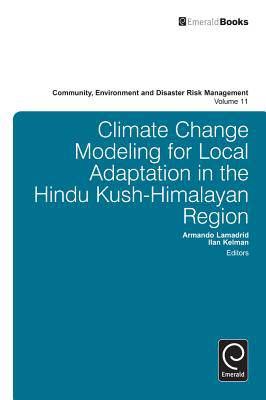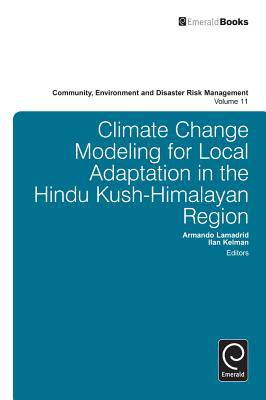
- Afhalen na 1 uur in een winkel met voorraad
- Gratis thuislevering in België vanaf € 30
- Ruim aanbod met 7 miljoen producten
- Afhalen na 1 uur in een winkel met voorraad
- Gratis thuislevering in België vanaf € 30
- Ruim aanbod met 7 miljoen producten
Zoeken
Climate Change Modeling for Local Adaptation in the Hindu Kush - Himalayan Region
€ 289,95
+ 579 punten
Omschrijving
This book presents a portrait of the social advantages and limitations of climate change related modeling in the Hindu Kush-Himalayan (HKH) region. Physical systems modeling - such as of climate, weather, water, and soil - can be useful planning tools, and are essential to the forecasts and projections used operationally for decisions on climate and development. However, these models and their limitations are rarely discussed in terms of how they are interpreted, misinterpreted, used, not used, needed and not needed by society at the local level for climate change adaptation. This publication addresses the implied but largely uncritiqued relationships between scientific modeling knowledge and local adaptation responses. It also presents theoretical perspectives on modeling and adaptation, supported by case studies of model use, non-use, interpretation and misinterpretation in the HKH region for application at the local level. It provides a critical angle into the value of modeling at multiple decision making scales in society, but focused on local needs. Case studies are presented from a variety of HKH countries, as defined by ICIMOD (which includes Bangladesh and Myanmar).
Specificaties
Betrokkenen
- Uitgeverij:
Inhoud
- Aantal bladzijden:
- 256
- Taal:
- Engels
- Reeks:
- Reeksnummer:
- nr. 11
Eigenschappen
- Productcode (EAN):
- 9781780524863
- Verschijningsdatum:
- 28/06/2012
- Uitvoering:
- Hardcover
- Formaat:
- Genaaid
- Afmetingen:
- 152 mm x 231 mm
- Gewicht:
- 521 g

Alleen bij Standaard Boekhandel
+ 579 punten op je klantenkaart van Standaard Boekhandel
Beoordelingen
We publiceren alleen reviews die voldoen aan de voorwaarden voor reviews. Bekijk onze voorwaarden voor reviews.






